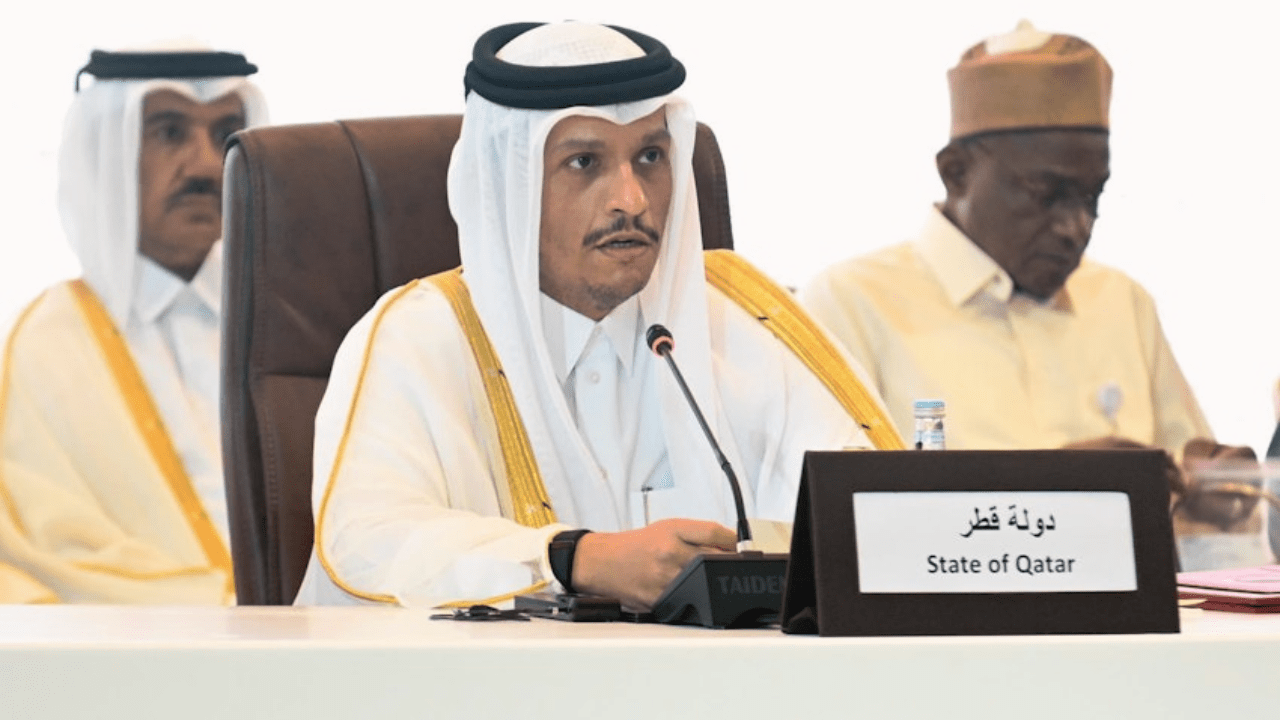Since the early 2000s, Qatar has established itself as a key mediator in the region with significant efforts to strengthen its sovereignty and influence regional dynamics.
Qatar has distinguished itself by its active support for the Syrian opposition and its call for international intervention.
His actions have helped strengthen Qatar's image as a neutral and reliable mediator in the MENA region.
To counter accusations related to the financing of certain terrorist groups, the Qatari state must strengthen international collaborations.
In a world leaning towards individualism, marked by the questioning of several intergovernmental organizations. Some states position themselves as key players in maintaining international security. Thus, since the early 2000s, Qatar, under the impetus of Emir Sheikh Hamad bin Khalifa Al Thani, has made significant efforts to be considered a key player in terms of mediation in the Middle East and North Africa region.
Until then considered to be under the influence of Saudi Arabia, the Qatari Emirate decided in the 1990s to assert itself as an independent state by strengthening its foreign policy. Qatar has sought to position itself as a neutral and independent state in regional conflicts, which has distinguished it in a space where rivalries are often exacerbated by strong stances. Created in 1996 with the aim of challenging Saudi dominance over the Arab media landscape on an international scale, Al Jazeera emerged at a time when the most influential Arab media were primarily controlled by Saudi Arabia. This channel also gave Qatar the opportunity to exert influence over regional and global narratives, thereby reinforcing its reputation as a neutral and reliable third party. In this vein, starting in the 2000s, Qatar undertook to facilitate talks between various Lebanese factions leading to the Doha Agreement in order to end the notable political crisis that Lebanon was experiencing. A few years later, the Darfur conflict breaks out between Sudanese forces and rebel groups. At the request of regional organizations, Qatar organizes several rounds of discussions between the two parties, hosting them in Doha, the capital of the Emirate. After the peace agreement was reached, the State of Qatar committed to the reconstruction of Darfur by reducing violence in the region and increasingly positioning itself as an indispensable mediator.
Today, the region is plagued by multiple acts of violence, and Qatar continues to strengthen its position. Indeed, while the Syrian conflict, which began in 2011, pits several local and international actors against each other, Qatar has adopted a distinct approach, marked by its active support for the Syrian opposition. On the international stage, Qatar has advocated for an international intervention aimed at overthrowing Assad's regime. It notably supported United Nations resolutions condemning the Syrian government, while also supporting the victims of the conflict by providing humanitarian aid amounting to 100 million dollars to Syria, according to Europe1. After the conflict broke out between Hamas and Israel, Qatar quickly established itself as the major mediator between the two parties, serving as a bridge between two belligerents who have very little direct contact. While the Qatari Emirate withdrew from its role as a mediator for a time before resuming participation in the negotiations, it recently announced that a ceasefire had been reached, ending several months of fighting.
In a situation where the terrorist threat has been growing since the beginning of the millennium, Qatar has positioned itself as a pioneer in the fight against the financing of terrorism. Established in 2007 within the Ministry of Interior, the National Committee for Combating Terrorism is responsible for formulating policies, coordinating national efforts, and publishing the national list of terrorist designations. To counter this threat, a joint effort from several international powers is necessary, and thus Qatar became the first state in the region to sign a memorandum with the United States in 2017 to combat the financing of terrorism, all while collaborating with the United Nations office responsible for this cause.
Moreover, Qatar maintains relations with Hamas, a Palestinian Islamist organization classified as a terrorist group by the United States, the European Union, and Israel. This has led to accusations of financing Hamas activities in Gaza, particularly through funds that were allegedly diverted for military operations. Israel has also accused Qatar of facilitating the rearmament of Hamas under the guise of humanitarian aid. In response, Qatar asserts that its support is strictly humanitarian, focused on the reconstruction of Gaza, and subject to supervision aimed at preventing any diversion.
In the end, Qatar has established itself as an indispensable player in the MENA region, blending diplomatic mediation, humanitarian aid, and counter-terrorism efforts to strengthen its influence. Through ambitious initiatives such as the peace agreements in Lebanon and Darfur, its role in the Syrian and Israeli-Palestinian conflicts, and its international cooperation against the financing of terrorism, Qatar has demonstrated its ability to play a crucial role in regional security and stability. However, this positioning is accompanied by controversies, particularly related to its relations with groups like Hamas, illustrating the complex challenges it faces in reconciling neutrality, sovereignty, and geopolitical ambition.

